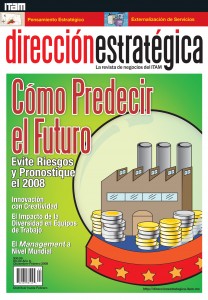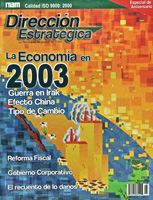 By: Dra. Gloria Robles
By: Dra. Gloria Robles
We all need to convince others to follow our proposal. Sales agents try to persuade buyers to choose the brand they’re promoting; advertisers try to increase the consumption of a product; politicians seek to win votes; and directors try to motivate their employees to turn their vision of the company into reality.
This means that persuasion is a subject of great use and utility. It is the reason why social psychology and communication sciences study it and have developed a series of techniques to make persuasive messages more effective. However, on many occasions, the ethical use of this tool has not been taken into consideration. In this context, the following paper is intended to identify the differences between manipulation and ethical persuasion, and invite readers to avoid the first idea and make use of the second.
































Promote Productivity Payment: National Development Agreement
The purchasing power of Mexican families has deteriorated during the last thirty years and has fallen dramatically due to the economic stagnation. México holds position 108 of the 134 countries in the Gini Index of the income distribution, and the international average is 40.34%. The Mexican index is at 48.2% – in 1950 it was close to 60%-. The trend is to improve, but it would take another 36 years to reach 26%. We fell in competitiveness from the 31st place we had in 1988 to the 66th and we had an approximate growth of 1.89% annually during the last 30 years. We have not reached cruising speed, which is the level Mexico deserves. However, there are ways and means to accelerate the pace.
The salary situation is extremely serious. This is reflected in the analysis of the pension systems: “The small number of workers registered in the social security systems are affected by the few years of contributions to the pension plans and, eventually, by the creation of a fund that is not large enough to be able to obtain an annuity. It can be seen that persons registered in their first working ages would spend most of their active work life outside the social security systems, and therefore they would be making contributions to their retirement plan of approximately twelve years for men and eight for women, which is very far from the minimum pension guaranteed under the IMSS Law in effect. Economic forecasting scenarios show that a constant 4.6% GDP growth rate would be required during a 30 year period (2000-2030) in order for the formal jobs with social security benefits to account for almost 85% of the PEA (Economically Active Population)
(read more…)